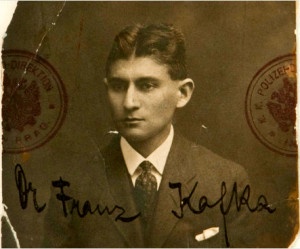The U.S. Supreme Court's denial of review in U.S. v. Newman, 773 F.3d 438 (2014) yesterday inspired the following very short tale:
Joseph K. knew that he had done nothing wrong, but, one morning, he was arrested. Joseph K. asked the officer "why have I been arrested?" The officer replied "insider trading". "What statute is that?" asked Joseph K. The officer responded "No statute precisely defines the offense". "Surely then, there must be a regulation" posited Joseph K. "There is no such regulation" answered the officer. Though annoyed by Joseph K.'s insistence on knowing exactly why he had been arrested, the officer explained: "You see, the offense is based on theories - two theories to be precise. It is only when the courts convict people of insider trading that they reveal the theories under which they have been convicted. It's been done this way for quite some time, just ask Mr. O'Hagan." Joseph K. now knew what the Fourth Circuit Court of Appeals already knew: "Absent clearly defined rules, investors find themselves the targets of ad hoc decisionmaking or pawns in an overall litigation strategy known only to the SEC." United States v. Bryan, 58 F.3d 933, 951 (4th Cir. 1995)
For more on the Supreme Court's decision, see Professor Stephen Bainbridge's post: Supreme Court denies cert in US v. Newman insider trading tipping case.



.png?width=100&height=100&name=corporate_law_blogs%20(1).png)